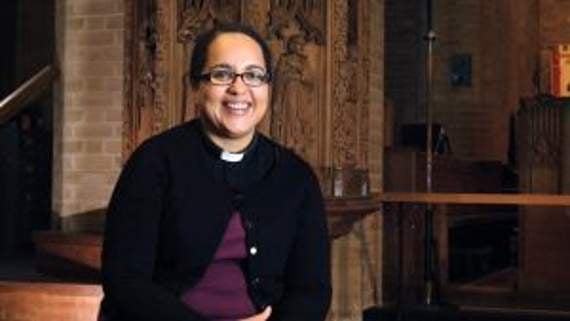THE Church has not practised what it preaches when it comes to racism and other forms of discrimination, the Bishop of Exeter has said.
The Right Reverend Robert Atwell was responding to the From Lament to Action report published by the Church of England’s Anti-Racism Taskforce.
It proposes 47 specific actions to bring about a “change of culture” in church life and warns the Archbishops that a failure to act could be a “last straw” for many people of UK Minority Ethnic (UKME) or Global Majority Heritage (GMH) backgrounds with “devastating effects” on the future of the Church.
Bishop Robert said: “God’s joyful vision of humanity is where every human being is special, made in the image and likeness of God.
“I welcome this report and join the Archbishops in lamenting the past failures of our Church in not practising what we preach.
“We are determined to root out racism and all other forms of discrimination and build a new equity in Christ.”
Rev Tanya Hockley-Still, the Priest-in-Charge of St Mark’s Church, Exeter, and the Diocese of Exeter’s UK Minority Ethnic (UKME) Advisor, said: “I welcome the report and the recommendations and hope that these actions are carried out.
“I hope that we, as the Church, hold ourselves accountable for ensuring that the recommendations take place in a timely fashion."
Rev Hannah Mears, Diocese of Exeter Vocations Development Officer, added: “The Church of England must move urgently in addressing systemic and institutional racism or it risks losing the rich diversity of all God’s people in both lay and ordained ministry.”
The report was commissioned last year in the light of killing of George Floyd and the Black Lives Matter protests, to address “decades of inaction” by the Church of England and a failure to deal with systemic and institutional racism within the organisation.
The recommendations include:
• An expectation that shortlists for jobs in the Church will include at least one appointable UKME candidate – and for more senior roles, right up to bishops, specific requirements to ensure this happens.
• New approaches to shortlisting and interviewing which place a duty on the employer to improve participation on an “action or explain” basis rather than relying on “bland encouragements” for under-represented groups to apply.
• Recruitment bodies including the Crown Nominations Commission, which nominates diocesan bishops, to provide “valid, publishable reasons” for failure to include UKME candidates on shortlists.
• The General Synod co-opting 10 UKME candidates (five clergy and five laity) for its next five-year term, which begins this year.
• The House of Bishops inviting UKME clergy to become participant observers until there are at least six UKME bishops in the House.
• A total of 30 per cent of new intakes on the Strategic Leadership Development Programme – a scheme to support clergy identified as having potential for taking on wider responsibilities – should come from UKME backgrounds, approximately 20 people from a group of 60. The figure is twice the estimated proportion of those who worship in the Church of England to begin tackling the current imbalance in the Church’s leadership by building up potential supply.
• The appointment of full-time Racial Justice Officers (RJOs) in every diocese – for a five-year term, funded centrally, alongside a new Racial Justice Directorate, within the National Church Institutions, to oversee implementation of the recommendations of the Taskforce and the Commission.
Rev Hannah Mears is Vocations Development Officer for the Diocese of Exeter and part of a working group to increase the number of candidates from UKME backgrounds entering lay and ordained ministry in Devon.
She said: “The Church of England must move urgently in addressing systemic and institutional racism or it risks losing the rich diversity of all God’s people in both lay and ordained ministry.
“From selection and theological training to recruitment and support for all levels of ministry, the Church’s systems must ensure the flourishing and full participation of Global Majority Heritage Christians.”
The Church of England is due to set-up a new Racial Justice Commission, which the taskforce suggests should consider how complaints of discrimination and racism could be handled in the future and how churches should respond to historic monuments and buildings of “contested heritage” such as links to slavery.
It also recommends the new Commission should examine broad questions of how parish life could become more inclusive.
The Diocese of Exeter will be studying the report’s recommendations carefully with a view to deciding what actions need to be taken.
If you would like to comment on the report or your own experiences, please email the Exeter Diocese communications team.



